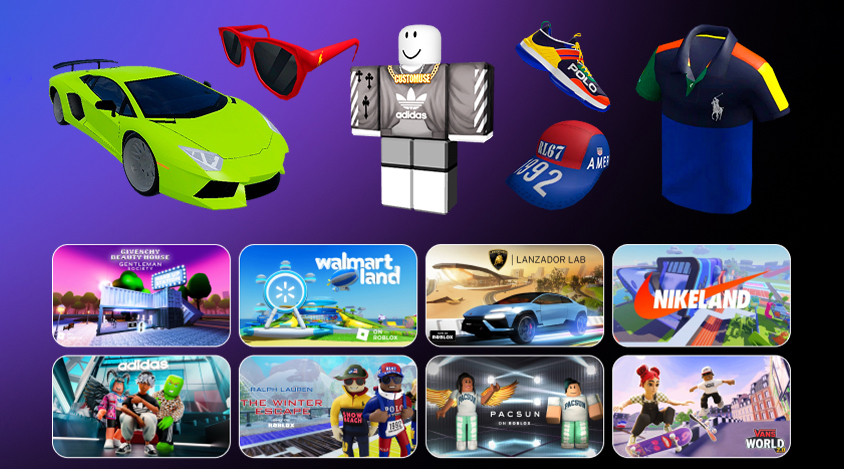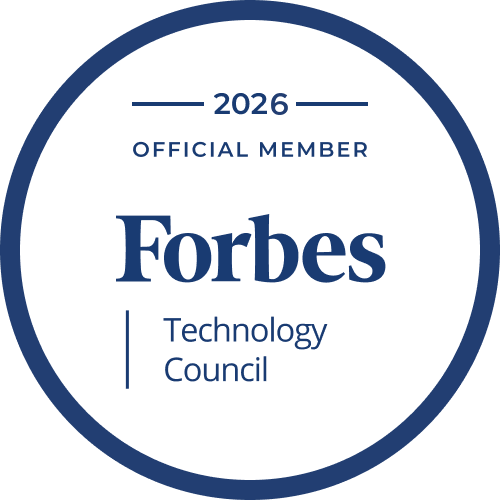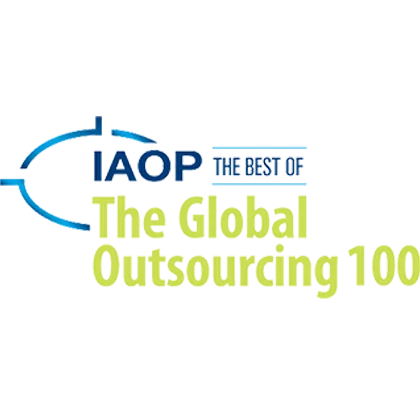Managing the metaverse's increasing possibilities has enormous potential to revolutionize corporate operations, particularly for those in the event management industry looking for novel solutions. The metaverse concept, with its blend of virtual reality, augmented reality, and internet technologies has not only piqued global interest but also sparked a wave of curiosity and speculation regarding its practical applications in various industries. Leading corporations, including entertainment giants like Disney and tech behemoths like Tencent, are at the forefront, delving into creating bespoke metaverse environments to leverage this technology's unique offerings.
For professionals in event management, the metaverse presents an unparalleled opportunity to revolutionize how events are conceived, planned, and executed. The virtual nature of the metaverse for events allows for the creation of immersive, engaging experiences that transcend the limitations of physical venues, offering attendees from across the globe a chance to participate in events without geographical constraints. The advent of metaverse events is already underway, signaling a significant shift towards digital spaces where creativity and interaction know no bounds.
This shift toward metaverse-based events needs a thorough grasp of the technology's capabilities and how they may be used to improve revenue models in the event sector. From virtual conferences and exhibitions to online concerts and networking gatherings, the metaverse for events is redefining the landscape of event management. To navigate this transition effectively, businesses may partner with a metaverse development company specializing in creating custom virtual spaces tailored to each event's unique needs.
By exploring events in the metaverse, companies can unlock innovative ways to connect with audiences, deliver content, and create memorable experiences. The metaverse offers a canvas for creativity, allowing event organizers to craft environments and scenarios that were previously unimaginable. As we witness the initial steps toward integrating the metaverse into event management, it becomes evident that this technology is not just a fleeting trend but a fundamental shift in how we conceive and experience events.
Digital Events & Metaverse Events: What’s the Difference?
Understanding the metaverse can be challenging, inasmuch as many people either need more clarity about its nature or mistakenly equate it with current digital platforms. If you are uncertain about what the metaverse is, it's worthwhile to explore detailed explanations that shed light on this innovative concept. To encapsulate it briefly, the metaverse represents an expansive virtual universe that users access through virtual reality technology, enabling a wide array of activities from professional work to leisure, including rich interactions with other users.
Given this context, you might wonder how the metaverse distinguishes itself from the digital events and entertainment options already available online. The answer lies in the immersive and interactive experiences that the metaverse uniquely offers for events. Unlike traditional online platforms, events in the metaverse provide an unparalleled level of engagement, simulating real-world interactions in a virtual setting. Such an immersive environment allows attendees to experience events as if they were physically present, enhancing the sense of community and connection among participants.
The potential of the metaverse for events extends beyond mere replication of physical experiences. Metaverse events can transcend traditional limitations, offering creative possibilities only constrained by the imagination. From attending a conference on a virtual beach to participating in a concert with fantastical elements, the metaverse enables event organizers to craft experiences that are not feasible in the physical world.
Furthermore, metaverse events facilitate a new level of interaction and personalization. Attendees can customize their avatars, navigate through virtual spaces freely, and interact with the environment and other participants in ways that closely mimic real-life dynamics. This level of personal engagement and the ability to virtually "be" in space brings a new dimension to online events, making them more memorable and impactful.
So, introducing the metaverse for events is poised to transform how we plan and engage in virtual meetings. By leveraging the immersive capabilities of the metaverse, event organizers can create experiences that are not only engaging but also deeply connective, offering a glimpse into the future of digital interaction. As we continue to explore the possibilities within the metaverse, the boundary between virtual and physical events will increasingly blur, heralding a new era of digital engagement.
Hardware Essentials for the Metaverse
The foundational technology of the metaverse is intricately linked with virtual reality, making VR headsets indispensable for accessing its expansive virtual environments. To enhance the immersive experience, VR hand controllers, gloves, and an array of additional sensors are often employed to ensure precise motion tracking. This suite of hardware, while more sophisticated than the devices typically required for conventional digital events such as PCs or smartphones, facilitates unparalleled immersion and interactive capability.
Avatars and Enhanced Interactions
In the metaverse, every participant is embodied by an avatar, ranging from humanoid to animal forms or any imaginative representation that allows users to express their individuality. While the concept of digital avatars is not novel, having been a staple in online events for years, avatars in the metaverse are engineered with advanced technology to mirror user movements and expressions more accurately. These avatars come equipped with enhanced functionalities, enabling richer interactions within the virtual space and among users, thereby elevating the experience of events in the metaverse.
Overcoming Restrictions with Metaverse Platforms
Prior to the advent of metaverse events, virtual gatherings were often constrained by the limitations of the platforms on which they were hosted. Services such as Hoppier, Weve, and Mixily offered a basic toolkit for interaction and media presentation, yet their one-size-fits-all model frequently fell short of meeting the diverse needs of event organizers, particularly in terms of interactive features and scalability.
Metaverse for events marks a departure from these constraints, as platforms within the metaverse are frequently tailor-made by businesses to incorporate a broad spectrum of features and capabilities. This customization allows for the creation of metaverse events that are not only more engaging but also more adaptable to the specific requirements of each event, providing a virtually limitless canvas for innovation.
The transition to metaverse for events represents a significant leap forward in how we conceive and participate in virtual gatherings. By harnessing the full potential of metaverse technology, event organizers can craft experiences that transcend traditional limitations, offering participants a richer, more connected form of engagement.
As we continue to explore what the metaverse is and its applications for events, it's clear that its impact on the industry will be profound, reshaping the landscape of virtual events and setting new standards for interaction and immersion.
Elevate experiences with our premier virtual event solutions.
What are the Benefits of Using a Metaverse in the Event Industry?
The common adage that novelty does not necessarily translate to improvement is often true, yet the emergence of the metaverse challenges this notion by presenting a suite of benefits and inherent values that position it as a significant and worthy investment. The metaverse distinguishes itself as a new digital innovation and a groundbreaking platform that reshapes how we interact, engage, and experience digital spaces. Its advantages underscore its potential as a transformative development in the digital landscape.
One of the metaverse's foremost benefits is the unparalleled level of engagement it facilitates through immersive experiences. Unlike traditional digital platforms, the metaverse envelops users in three-dimensional environments that significantly enhance the sense of presence and interaction. This immersive quality makes events hosted in the metaverse more impactful and memorable, fostering a deeper connection between participants and the content or activities.
Furthermore, the metaverse is a bastion of creativity and customization, offering limitless possibilities for designing and experiencing virtual spaces. This aspect is particularly evident in the context of metaverse events, where organizers have the freedom to create unique and diverse experiences that transcend the limitations of physical venues. The metaverse serves as an expansive canvas for creative expression, from constructing intricate virtual worlds to hosting events in settings that mimic real-world locations or entirely fantastical realms.
Another critical advantage of the metaverse is its capacity to eliminate geographical barriers, making events and interactions accessible to a global audience. This inclusivity not only extends the reach of metaverse-based events but also promotes a rich exchange of cultures, ideas, and perspectives among participants from various parts of the world. The ability to bring together diverse individuals in a shared virtual space enhances the richness and depth of the collective experience.
The metaverse also excels in facilitating real-time collaboration and networking, closely mirroring the dynamics of in-person interactions. Participants in metaverse events can communicate, network, and collaborate with ease, thanks to the platform's interactive features and realistic simulation of physical presence. This environment is conducive to fostering meaningful connections, discussions, and collaborative efforts among attendees.
Moreover, the metaverse opens new frontiers in education and training, offering immersive and interactive learning experiences that can enhance understanding and skill acquisition. Educational events in the metaverse can simulate complex scenarios and procedures, providing a safe and effective environment for learners to practice and hone their skills without the risks associated with real-life training.
Everyone knows that just because something is new, that doesn’t mean that it is better than everything that came before it. However, the metaverse provides enough benefits and value to support its standing as a solution worth investing in. Below are just a few of its advantages:
1. More immersion and excitement
Though VR has been around for about 6 years now, its “wow factor” has still not worn off. In other words, users are excited about using it, and any event hosted through it is certain to generate a lot of buzz and eager attendees. With advanced tools of Unity metaverse development or other specific software, you can build the next-level immersive world.
2. Potential for reuse
Any event platform built in the metaverse has a good chance for long life, and a versatile range of uses. After all, as long as the software and hardware stay active, the platform can be used again and again for events, and functionality can be added. It might even be leased to other providers with the SaaS business model or sold altogether.
3. Next-gen tech opportunities
The metaverse is often mentioned in conjunction with cryptocurrency, blockchain, and NFTs — all hot technologies in our current time. Event managers can also future-proof their platforms and attract new investors by implementing some or all of these solutions. For example, they might feature digital items and NFTs in events that can be purchased with a crypto token, or save important data from events on the blockchain.
4. No space restrictions
Unlike events held in concert halls, conference rooms, stadiums, etc., metaverse platforms can be near-unlimited in the number of visitors that can attend, and everyone can be in the front row of the action – no pushing or early queuing required.
5. Easy customization
Adding to the previous point about unlimited seating space, the features and interactions including in metaverse event platforms are also very diverse. As long as they have a handle on development, any company can apply their creativity and business strategy to come up with a unique list of features, functionality, and content that will make them shine and make it happen through the software.
Your business can also benefit!
Check out our metaverse development services
What Types of Events Can Be Hosted in the Metaverse?
The metaverse is already taking a hold on this unique industry, with hundreds of platforms already deployed or in the works. To show the bigger picture, we have listed some of the most common use cases:
Conferences & Expos
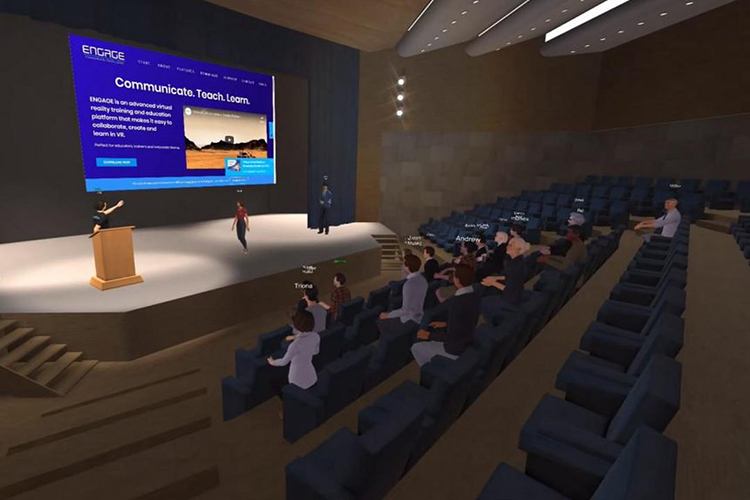
It is superbly easy to create expo halls and exhibits in VR, so you can take advantage of a quick development cycle or take the time to add cool features like animations, user feedback, and others.
Live entertainment

Concerts in the metaverse are already happening, and with time, could extend to movie premieres, celebrations, festivals, and other loud and visually-dynamic events.
Sports events

Some sports organizations like the NBA have already embraced immersive experiences paired with real-life games. While spectatorship is currently popular, future events might let users place bets, purchase NFTs, and express their emotions at stadiums and matches.
Fashion shows

The metaverse is a great place to hold runway shows and galas, with the fashion items being represented by 3D models or streaming real-life photos/footage into VR. Big names in the industry like Prada and Balenciaga have already started delivering on this front.
And more…
There are many more possible use cases for events in the Metaverse. So you can let your imagination fly and build something that hasn’t been done before.
Developing a Metaverse Event Design and Organizing Platform with Program-Ace
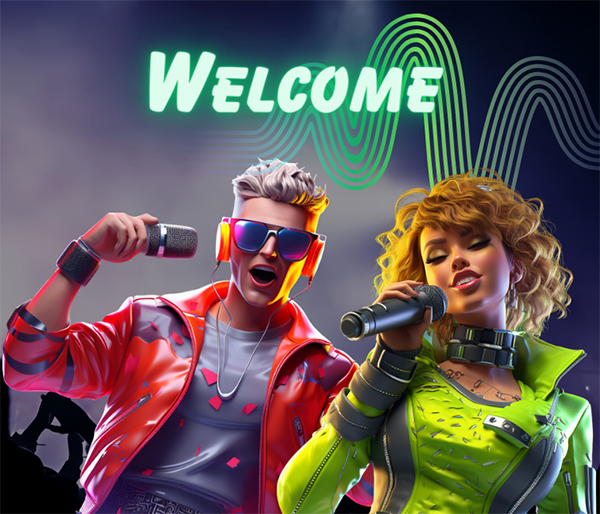
Merging traditional and digital ticketing, the Program-Ace team developed a platform that supports 2,000 users with specialized rooms. It offers immersive experiences enhanced by customizable avatars and NFT interactions, allowing users to interact with 3D assets.
How to build a Metaverse for your events
There are numerous challenges to overcome before your event platform can be up and running, but it’s really nothing too spectacular. Even if you don’t have in-house developers that have designed VR applications before, you can hire a development partner for a faster, more professional, and convenient production cycle.
For example, Program-Ace is a strongly-established name in the field of immersive development. We were one of the first companies to begin developing VR solutions (just as the first headsets appeared), and have accumulated a vast amount of experience over the years. In other words, we know how to build complex and versatile solutions, and have a large team available to deliver it quickly.
If you want to know more about what cooperation in the development of your metaverse event platform might look like, be sure to send us a message about your project.
FAQ
Incorporating metaverse events into an existing digital strategy provides organizations with a new way to interact with their audience, increase brand visibility, and create immersive experiences beyond typical digital platforms.
With its unique mixture of virtual reality, augmented reality, and digital interconnectedness, the metaverse provides a fertile ground for hosting events that can captivate and engage participants in unprecedented ways. Here's a comprehensive guide on how businesses can seamlessly incorporate events in the metaverse into their digital strategies:
Define your objectives. Establish clear goals for integrating metaverse events into your strategy. Whether it's increasing brand awareness, launching new products, fostering community engagement, or providing educational content, having specific objectives will guide the planning and execution of your metaverse events.
Understand your audience. Gain insights into your target demographic's familiarity and comfort with the metaverse. Tailoring events in the metaverse to match the audience's technological savviness and interests ensures higher participation rates and engagement levels.
Select the right platform. Choose a metaverse platform that aligns with your event's objectives and audience needs. Factors such as ease of access, customization options, interactivity features, and scalability should influence your platform selection for hosting metaverse events.
Leverage immersive content. Utilize the metaverse's capabilities to create content that is interactive, engaging, and immersive. Incorporating elements such as 3D product demonstrations, interactive Q&A sessions, and virtual networking spaces can enhance the attendee experience at metaverse for events.
Promote your events. Utilize your existing digital channels, such as social media, email newsletters, and your website, to promote your metaverse events. Clear communication about accessing and navigating the metaverse for events will encourage participation.
Offer technical support. Provide resources and support to assist attendees in navigating the metaverse, especially those new to the experience. This might include tutorials, FAQ sections, or live support during the event to ensure a smooth and enjoyable experience for all participants.
Gather feedback and iterate. After hosting events in the metaverse, collect feedback from participants to understand what worked well and what could be improved. Use this insight to refine future metaverse events, ensuring they continue to align with your digital strategy and audience expectations.
Integrating metaverse events into a digital strategy not only diversifies the ways in which a business can interact with its audience but also positions the brand at the forefront of technological innovation. By hosting events in the metaverse, companies can create memorable, engaging experiences that leverage this emerging digital landscape's full spectrum of possibilities. As the metaverse continues evolving, so will the opportunities for businesses to connect with their audiences in this virtual space.
To explore how metaverse events can elevate your digital strategy and create unparalleled experiences for your audience, contact us. Our team specializes in crafting bespoke metaverse solutions that align with your brand's goals and audience needs, ensuring your foray into the metaverse is both successful and impactful.
Selecting the right metaverse development company for hosting virtual events is a pivotal decision that can significantly impact the success of your events in the metaverse. With the metaverse offering a new horizon for immersive experiences, ensuring that your metaverse events captivate and engage your audience requires careful consideration of several critical factors.
Firstly, expertise in metaverse technology is non-negotiable. A company specializing in the metaverse for events should possess a deep understanding of virtual and augmented reality technologies and a proven track record of creating engaging virtual environments. Their portfolio should showcase diverse events in the metaverse, highlighting their ability to tailor experiences to different industries and audience demographics.
Secondly, the company's approach to customization and scalability is crucial. Metaverse events are not one-size-fits-all; they should reflect your brand's identity and meet your objectives. The metaverse development company's ability to customize environments, avatars, and interactions according to your needs is essential for creating memorable and impactful metaverse events. Furthermore, scalability is critical to accommodating varying audience sizes, ensuring the virtual space can handle the expected participant numbers without compromising performance.
Interactivity and engagement features are another vital consideration. The essence of hosting events in the metaverse lies in creating interactive experiences that surpass traditional digital events. The chosen company should demonstrate innovative use of interactive elements, such as live polls, Q&A sessions, networking zones, and gamification, to foster active participation and engagement in the metaverse for events.
User experience and accessibility also play a significant role in the selection process. The metaverse development company should prioritize intuitive navigation and user-friendly interfaces to guarantee that attendees can easily navigate the metaverse events regardless of their technical proficiency. Accessibility extends to device compatibility, ensuring the virtual event can be accessed through various hardware, from high-end VR headsets to standard PCs and smartphones.
Lastly, security and privacy measures are paramount, especially given the digital nature of events in the metaverse. The company should adhere to stringent data protection standards and employ robust security protocols to safeguard participant information and ensure a safe virtual environment for all attendees.
In conclusion, selecting a metaverse development company for hosting virtual events involves thoroughly evaluating their technical expertise, customization capabilities, interactivity features, user experience, and commitment to security. By partnering with a company that excels in these areas, you can unlock the full potential of metaverse events, creating immersive, engaging, and secure experiences for your audience.
Connect with us to explore how we can elevate your virtual events in the metaverse. Our team is dedicated to delivering metaverse solutions that resonate with your brand and captivate your audience.
Given the digital nature of these gatherings, ensuring security and privacy during metaverse events is paramount. As events in the metaverse gain popularity, adopting robust measures to protect participants and their data becomes essential. Here are key strategies to safeguard security and privacy in the metaverse for events:
End-to-end encryption. Encrypting data from the moment it's transmitted to when it's received ensures that sensitive information remains confidential and secure. This is crucial for conversations, data exchanges, and any interactions within metaverse events, preventing unauthorized access and ensuring privacy.
Secure authentication processes. Implementing strong authentication methods, such as two-factor authentication (2FA) or multi-factor authentication (MFA), adds an additional layer of security, verifying the identity of each participant entering the metaverse for events.
Regular security audits. Conducting thorough and regular audits of the metaverse platform can identify and rectify potential vulnerabilities. This proactive approach ensures that the metaverse events remain secure against evolving cyber threats.
Privacy controls for participants. Giving participants control over their personal information and how it's shared within the metaverse enhances privacy. Clear privacy settings allow attendees to manage their visibility and interactions during metaverse events, fostering a secure environment.
Anonymity options. Offering anonymity options, such as customizable avatars and pseudonyms, allows participants to engage in metaverse events without disclosing personal information, enhancing privacy while maintaining the metaverse's interactive essence.
Data protection compliance. Adhering to international data protection regulations, such as GDPR or CCPA, ensures that the metaverse events platform respects privacy laws and standards, safeguarding participant information.
Dedicated moderation teams. Having a team in place to monitor metaverse events in real time can quickly address any security or privacy concerns that arise, ensuring a safe environment for all attendees.
Participant education. Educating participants about best practices for security and privacy within the metaverse, including safeguarding personal information and recognizing potential threats, empowers users to contribute to a secure event environment.
Adopting these measures can significantly enhance the security and privacy of events in the metaverse, creating a safe and trustworthy space for participants to engage and interact. As the metaverse continues to evolve, so too will the strategies for protecting these virtual environments. For businesses and organizations looking to host events in the metaverse, prioritizing security and privacy is not just beneficial — it's essential.
In order to learn more about how to maximize security and privacy during your metaverse events or to discuss your next metaverse project, get in touch with our team. Our team is dedicated to providing secure, engaging, and immersive metaverse solutions tailored to your needs.

